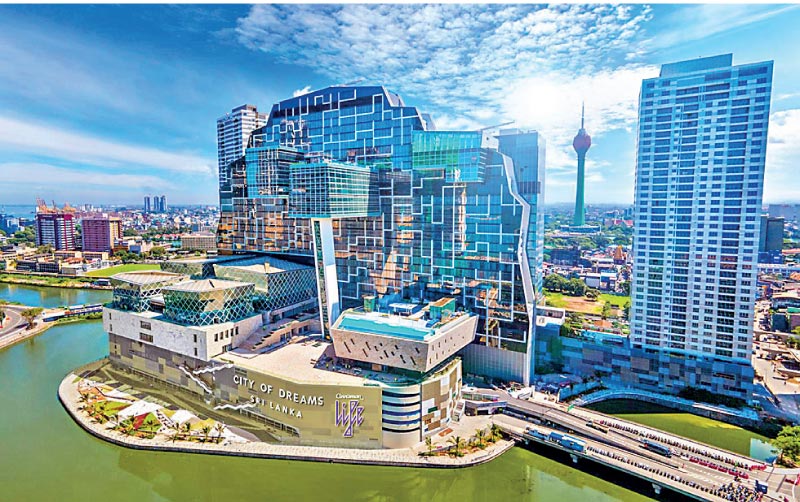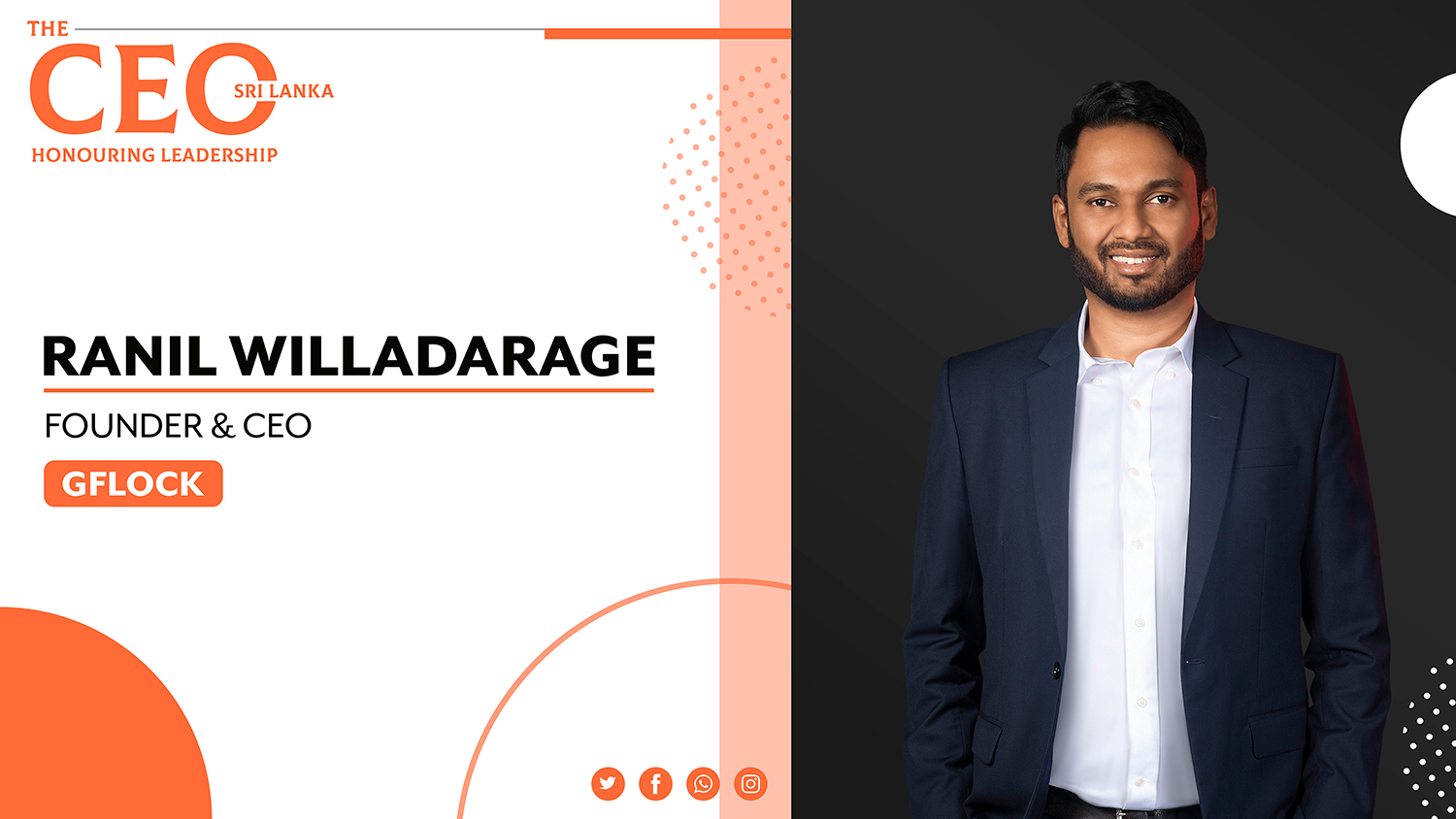Coloring the apparel industry by redesigning norms and setting benchmarks ever since he set foot in the industry. Ranil Willadarage, The Founder cum CEO of GFlock, outlines the ins and outs of his inspiring success story.
Hailing from Akuressa, the successful achievement of the grade five scholarship exam determined Ranil’s relocation to Colombo for his studies at Royal College. During his early ages he found school boring and soon realized that intermingling with fellow students who come from various milieus and influences was an authentic way of learning about society and culture and the way people work. You could say this was his first practice in observing consumer behavior.
As soon as he left college, he joined the Sri Lanka Institute of Textile and Apparel (SLITA) and although his family did not encourage his decision he had confidence in his creative skills and was quite sure that this was an industry that he could perform in. After graduating he joined Hirdaramani Apparel as a product development executive and this created openings for him and gave him the privilege to bump shoulders with international designers and merchandisers representing huge global brands such as Nike, Tommy Hilfiger and DKNY. During his period at Hirdaramani Apparel as a senior designer, he was always thinking of ways he could help improve the economic situation of Sri Lanka and he had the idea to use all the exposure and experience he had collected to create a Sri Lankan fashion brand that would generate much needed foreign currency. This led to him teaming up with a like minded partner and establishing Kelly Felder, the island’s first ever 100% locally designed brand, in 2007
This led to them setting the benchmark for the local fashion manufacturing industry by using modular manufacturing methods and they set the precedent of being the first brand to promote and sell through Facebook. They were also the first brand to launch weekly fast fashion collections parallel to their social media which created brand new buying patterns in the consumer markets.
After his departure from Kelly Felder, Ranil was determined to use his entrepreneurial skills to create a much stronger foundation and through his desire to cater to more people established the unisex brand GFlock in 2013. Since then GFlock has been the leading fashion brand in the industry and caters to the local market with three retail stores and an online store, while it serves the rapidly growing international markets with its exceptional .com online store.
Ranil is optimistic about the future of the fashion industry and the opportunity for massive growth because of its global scale. He uses the example of the Chinese fashion giant SHEIN to showcase how a brand can go from being a million dollar revenue company to earning billions of dollars in revenue almost overnight. Although he competes with such giants now in the global market, he is not too concerned as he believes that GFlock has the competitive advantage when it comes to price and quality. There is a void in the international fashion markets that GFlock can fit into comfortably with its quality fabric and stitching which creates durable fashion at an affordable price. Their quick model of launching over 50 designs a week also gives them an advantage as they can adapt to consumer trends a lot faster than other traditional seasonal collection based brands.
When asked about challenges he faces when leading his workforce, he states that the main issue is developing the right people for the job in over 15 different departments. It is difficult to align everyone to have the same vision for the growth of the organization and he has not been hesitant about cutting people out when he feels that their goals are not aligned. Today he is proud to say that he has a solid young team representing various levels of society and have developed their fashion ERP (Enterprise Resource Planning) and SOP (Standard Operating Procedure) to support the scalability.
Speaking about the philosophy at GFlock, Ranil states that “I am an entrepreneur who believes that the resources in the company should be shared among the organization and should not just line my pockets” He believes that able entities such as himself should give back to the community in any way they can. He does not take profits home and instead invests them into helping with the essential needs of the families of sewing operators and other low income employees. “Preserving humanity has been the vision of the company and I believe brand value and money comes as a byproduct of a selfless vision towards both society and nature”
Ranil continued, “We cultivate our rice in Panduwasnuwara, and feed the low-income families with essentials as a family pack monthly”. He believes in being self-sufficient and circular as much as possible as a business model, and made it his key responsibility since the Covid-19 pandemic. “As an entrepreneur, I believe in developing the mental state towards positivity and bridging consumers and employees into a circle of good deeds by distributing the resources among the people who are in need.” GFlock also initiated the project of giving away a free plant with every purchase on the World Environment Day of 2018. This concept for the conservation of the environment is based on creating meaningful bonds between humans and nature with the aim to inspire people to start treating trees as equal beings. Within the course of 4 years since its inception, GFlock has managed to create over thirty thousand such meaningful bonds that link our brand and customers together with Mother Nature. GFlock believes that they can inspire future generations to contribute to the sustainable preservation of the environment through this example that creates a link between man and nature in an intimate way that goes beyond just a clothing purchase.
Even during these pressing times, Ranil is optimistic about the future and says “ I strongly believe there is great hope for light at the end of the tunnel. As physical retail stores are shrinking in high fashion streets in various countries, I believe that global digitized online selling has been the most popular and meaningful business method to get more and more audiences familiar with digital habitation. This could be the solution for better revenue shortly”. Ranil has already escalated his view as an entrepreneur to the Sri Lankan government and the national media as a means of really bringing financial relief to Sri Lanka and the ball is in motion to get these processes underway.
“I believe, I am here to accomplish this noble duty and rest after achieving the goal and handing over my ownership of the company to the economically struggling nation that supported us to grow this far, and that is my last wish”.


